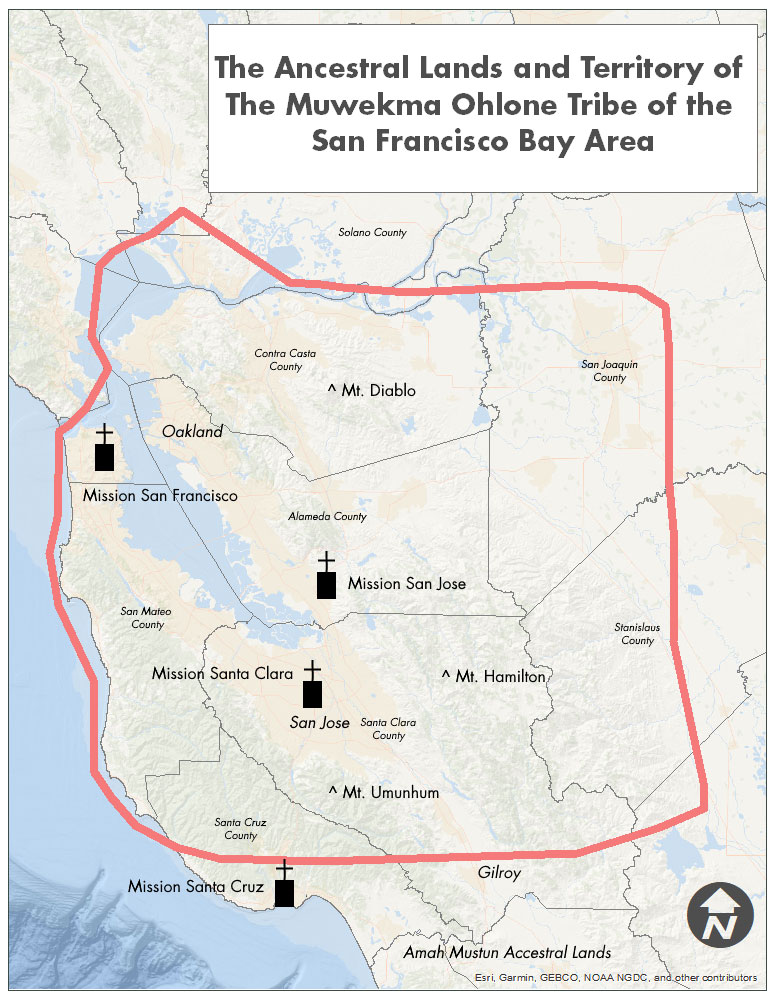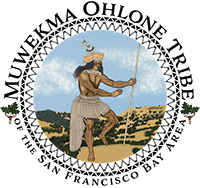

A Land Acknowledgement is a formal statement that recognizes the unique and enduring relationship that exists between Indigenous Peoples and their traditional territories. An Acknowledgement honors and expresses gratitude to the indigenous people who originally inhabited this land, which modern society resides on. It is an avenue to obtain understanding of the decisions and paths taken that led to the use of this land. Colonialism colors the use of this land and it continues to define said use, and this Acknowledgement builds mindfulness of the current use of the land.


The College humbly works in unceded Ohlone territory, here in De Anza College also known as the South Bay and or Silicon Valley. We live among the original caretakers and stewards, The Muwekma Ohlone Tribe of the San Francisco Bay Area. We recognize De Anza College sits on the crux of Raymatush and Tamien tribal lands,. For more information about the Muwekma, please visit their website.
Our vision is to continue a beautiful legacy of ancestral wisdom and cultural keeping in relationship to the land with much love and respect. We understand we do this work with the contradiction that we are in occupied territory after the massacre and genocide of Ohlone peoples, with western definitions of political borders. Thus with more conviction, we are determined to educate ourselves, as staff, faculty, students and as community members to decolonize and deconstruct, to make room for ongoing unschooling, to learn cultural humility, giving life to social justice inside and outside the classroom centering first nation peoples and through relationship building. In this way, we stay true to an indigenous way of life, to the core value that involves "To All My Relations."
America is a vast land of many cultures dating back thousands of years to the original inhabitants of the land. The history and heritage of Native Americans, Alaska Natives, Native Hawaiians, and Island communities are inextricably linked to the culture of the United States. It is important to be cognizant of and understand the lasting effects of First Nation groups, colonialism, and modern culture.
American Government and Institutions: The Library of Congress, National Archives and Records Administration, National Endowment for the Humanities, National Gallery of Art, National Park Service, Smithsonian Institution and United States Holocaust Memorial Museum join in paying tribute to the rich ancestry and traditions of Native Americans.
"The month is a time to celebrate rich and diverse cultures, traditions, and histories and to acknowledge the important contributions of Native people. Heritage Month is also an opportune time to educate the general public about tribes, to raise a general awareness about the unique challenges Native people have faced both historically and in the present, and the ways in which tribal citizens have worked to conquer these challenges." - National Congress of Native Americans
National Geographic has a series of articles & a resource library on Native American Heritage Month. It includes images, articles on Native American groups across the country, and more.
Please see the website here or click on the image above!

The United States of America was founded on an idea: that all of us are created equal and deserve equal treatment, equal dignity, and equal opportunity throughout our lives. Throughout our history — though we have always strived to live up to that idea and have never walked away from it — the fact remains that we have fallen short many times. Far too often in our founding era and in the centuries since, the promise of our Nation has been denied to Native Americans who have lived on this land since time immemorial.